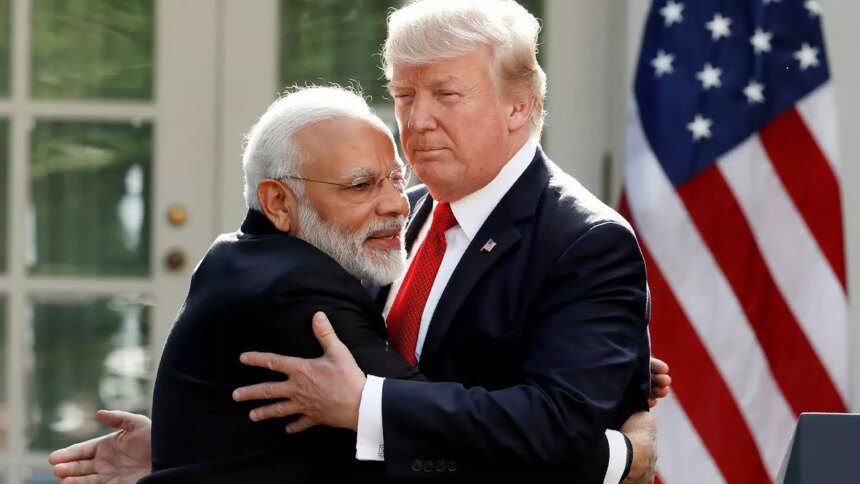India is moving swiftly to address the concerns of US President Donald Trump, aiming to avoid a potential trade conflict. In recent weeks, Prime Minister Narendra Modi has introduced a series of concessions aimed at aligning with Trump’s agenda, offering insight into New Delhi’s strategy for engaging with the new administration as it imposes tariffs on various countries.
The latest move came when Modi’s government announced substantial changes to its tariff policies, which included significant reductions on imports ranging from textiles to motorcycles. This shift is accompanied by India’s commitment to accept a number of undocumented migrants from the US and to use the US dollar for trading purposes.
Modi is scheduled to meet Trump in Washington next week, marking one of the first formal visits by a foreign leader since Trump took office. The urgency of these initiatives reflects a shift in India’s approach, especially compared to Modi’s tougher stance during Trump’s first term, when trade disputes led to the US revoking trading privileges for India.
Officials in India, speaking on condition of anonymity, express a strong desire to maintain and deepen relations in trade, defense, and technology with the US. They recognize that fostering friendly ties with the Trump administration offers India more opportunities than risks.
Experts note that India’s strategic importance to the US—especially in the context of the Indo-Pacific strategy—is significant. The risk of US tariffs on India appears minimal, prompting Indian leaders to take proactive steps to avoid any negative economic repercussions.
As nations around the globe brace for potential protectionist measures from the US, India has much at stake in its trade relationship with America. The country has a substantial trade deficit, largely due to energy imports, but benefits from a bilateral surplus with the US.
In recent years, India and the US have strengthened collaboration in defense, technology, and nuclear cooperation, particularly as Washington seeks to support New Delhi as a counterbalance to China. Major US companies such as Apple and Micron Technology have recently expanded their operations in India.
Despite these improvements, Trump has frequently criticized India for its high tariffs, vowing to impose equivalent duties. Modi’s recent reduction of tariffs on heavy-duty motorcycles specifically addresses issues raised by Trump regarding products like Harley-Davidson bikes, which have faced challenges in navigating India’s complex tariff landscape.
India’s Finance Secretary described the country as “not a tariff king,” pushing back against Trump’s characterization from earlier in his term. The tariff revisions are seen as a response to Trump’s concerns, signaling an intent to resolve outstanding issues.
However, tensions remain, particularly regarding India’s continued import of crude oil from Russia, which the US has sanctioned due to its actions in Ukraine. Additionally, an Indian government official faces indictment in the US for alleged involvement in a conspiracy related to the murder of an American citizen.
There is a potential risk for India in its attempts to appease Trump, as such concessions may lead to further demands from the US leader, an economist warned. The prospect of ongoing negotiations can create uncertainty about the stability of trade agreements and requirements.
For more insights and analyses on the actions of billionaires, businesses, and markets in India, stay connected with Bloomberg India for exclusive updates.










